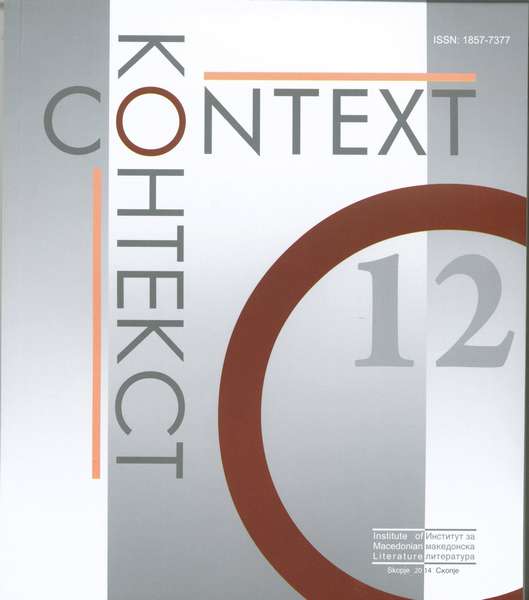СЕМАНТИЧКИТЕ АСПЕКТИ ВО ПОТЕКЛОТО НА
РЕМИКС КУЛТУРАТА
Semantic Aspects in the Origins of Remix Culture
Author(s): Vangel NonevskiSubject(s): Music
Published by: Институт за македонска литература
Keywords: music; mixing; sampling; remix; remix culture; turntable mediated music; dada art; readymade; semantics; meaning; DJ; recontextualization; aesthetics
Summary/Abstract: Since the emergence of Dadaism, most contemporary art is imbued with the spirit of direct and/or indirect mediation. Namely, works of art stand as collages or recycled products of existing works. In this respect, the invention of the turntable has played a crucial and irreplaceable role in the case of remixed music culture. The credo of remix culture, i.e. to create something new from the existing, became the paradigm of the present-day music scene. However, several decades have passed since the global culture lost its faith in the search for “the new”, regardless if it was sought in the arts, the entertainment industry or music. We should not grieve the loss of that faith at all. The faith in the new is a faith in the sovereign author-god and in the concept of a complete and finished work of art. The sovereign author, who in premodern times was identified as the denominator of the undisputed semantic meaning of a work of art, is lost in the remixing process. Once a work/text becomes susceptible to reproduction, it is stripped bare of its author’s position as a sole determining factor of its semantic resonance. A DJ who mixes and manipulates a song replaces the author as an additional semantic attributefactor, and the relationship is democratized and liberalized even further when we find out that DJs mix music according to the reactions of party-goers. Therefore, the semantic meaning of a contemporary musical work of art becomes widened and susceptible to potentially infinite (re) contextualizations.
Journal: Context/Контекст
- Issue Year: 2014
- Issue No: 12
- Page Range: 179-190
- Page Count: 12
- Language: Macedonian

